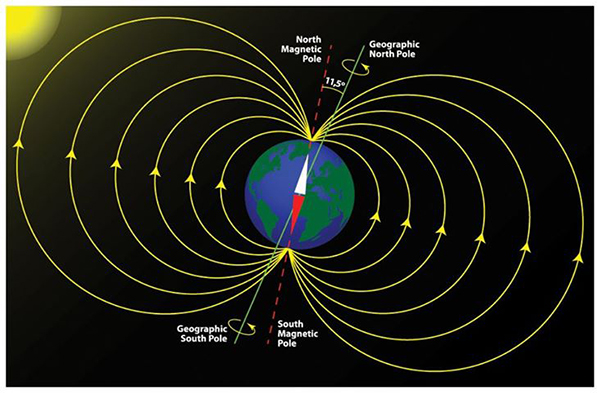(单词翻译:单击)
That explained where all the sediment went. It was being returned to the bowels of the Earth. It also explained why ocean floors everywhere were so comparatively youthful. None had ever been found to be older than about 175 million years, which was a puzzle because continental rocks were often billions of years old. Now Hess could see why. Ocean rocks lasted only as long as it took them to travel to shore. It was a beautiful theory that explained a great deal. Hess elaborated his ideas in an important paper, which was almost universally ignored. Sometimes the world just isn't ready for a good idea.
该学说解释了那么多沉积物的去向。原来,它源源不断地回到了地球的肚子里。该学说还说明了那里的海底都比较年轻的原因。人们发现,那里的海底年龄都不超过1.75亿年。这是个谜,因为大陆上的岩石年龄往往有几十亿年。现在,赫斯终于明白了,海底岩石的存在时间,只是它来到海边所花的时间。这是一种美好的理论,解释了不少事情。赫斯在一篇重要的论文里阐述了他的观点。但是,这些观点几乎没有引起广泛的重视。有时候,世界对好的见解确实缺乏思想准备。
Meanwhile, two researchers, working independently, were making some startling findings by drawing on a curious fact of Earth history that had been discovered several decades earlier. In 1906, a French physicist named Bernard Brunhes had found that the planet's magnetic field reverses itself from time to time, and that the record of these reversals is permanently fixed in certain rocks at the time of their birth. Specifically, tiny grains of iron ore within the rocks point to wherever the magnetic poles happen to be at the time of their formation, then stay pointing in that direction as the rocks cool and harden. In effect they "remember" where the magnetic poles were at the time of their creation. For years this was little more than a curiosity,
与此同时,有两位独立开展工作的研究人员,正利用几十年前已经发现的一个有意思的地球史实,获得一些惊人的结果。1906年,法国物理学家贝尔纳·布吕纳发现,这颗行星的磁场不时自行逆转,逆转的情况永久记录在某些正在形成的岩石里。具体来说,岩石里的铁矿石小粒子指向磁极,无论在它们形成之时磁极恰好在哪里,然后在岩石冷却和凝固的过程中永远指着那个方向。实际上,岩石“记住”了自己形成之时磁极的方向。多年来,人们只是觉得这很有意思。


